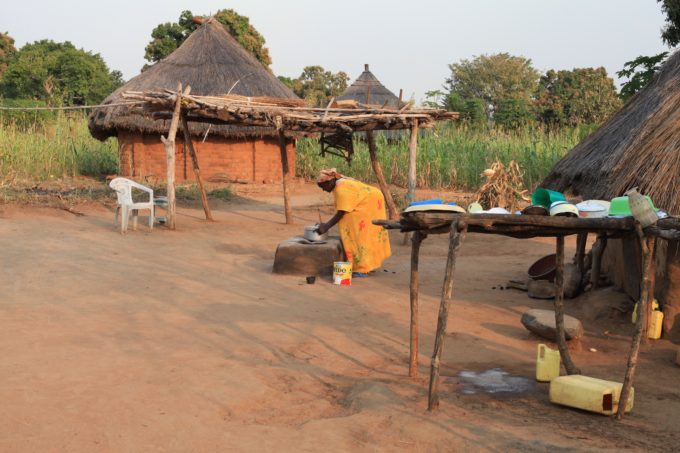
A woman cooks over a clay stove in a home compound, South Sudan Village of Kajo-Keji.
Kajo-Keji Village, South Sudan. A Portrait.
In the village of Kajo-Keji, South Sudan, time has stood still. The village lifestyle continues much the same way as in the past twenty years. Kajo-Keji is home to the Kuku tribe. The villagers live simply, in touch with nature and in rhythm with the seasons. The people plant during the rainy season, April and August. Their harvests run into the dry season. They sell their excess in exchange for sugar, salt, cooking oil, and those industrially manufactured goods.
They are free of modern diseases of excess such as high blood pressure, hyperlipidemia and diabetes. Their diet is made of food they cultivate. Organic foods that are devoid of chemical additives, saturated fats, or compact sugars. Their teeth stay white and strong for a lifespan. Few have seen a dentist. Their natural salt, called kombo, is rich in fluoride and chemicals that harden the teeth.
There is no running water in Kajo-Keji. The villagers fetch water from boreholes dug by NGOs, or they collect water from natural streams. There is no electric grid. They cook with charcoal or firewood. They cook fresh produce daily and consume it all at day’s end, given no refrigeration. For rainy days, they have smoked meat and fish or sun-dried vegetables, like beans, peas, maize, okra.
Bicycles and motorbikes are the mode of transportation within the village. Most often folks foot to wherever they need to go. Hence, they are lean and healthy.
Kajo-Keji is pristine. It is surrounded by rolling hills and fertile green fields. Morning dew greet the villagers as they start their day; crisp air hellos them as they end their long day. Everyone takes care of their household cleanliness. Women sweep their compound daily and burn the trash pile.
The darkness of night blankets every view. You can’t see a friend adjacent to you nor can you see your lifted hand a foot away. Life grinds to a hold as the sun sets. All creatures must rest as God intended, except the crickets, mosquitos and bats. The sky is any astronomer’s jewel, free of light pollution from industrial and residential light bulbs. The stars twinkle brightly. The villagers have no use for alarm clocks to wake up. Morning is announced by roosters that retire at sunset, unrestrained and vigor to dong the bell at the call of duty.
This is the equator, where keeping time needs no watches; where birds, monkeys, snakes, goats, butterflies, humans all have a place as God intends.
Images of Kajo-Keji Village, South Sudan
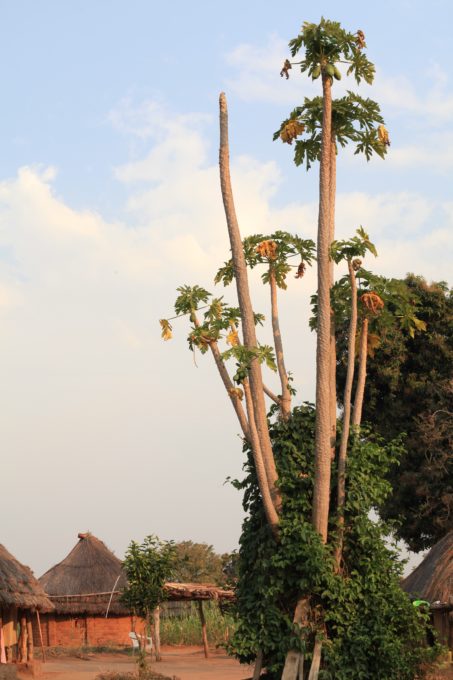
Papaya trees, Kajo-Keji, South Sudan.
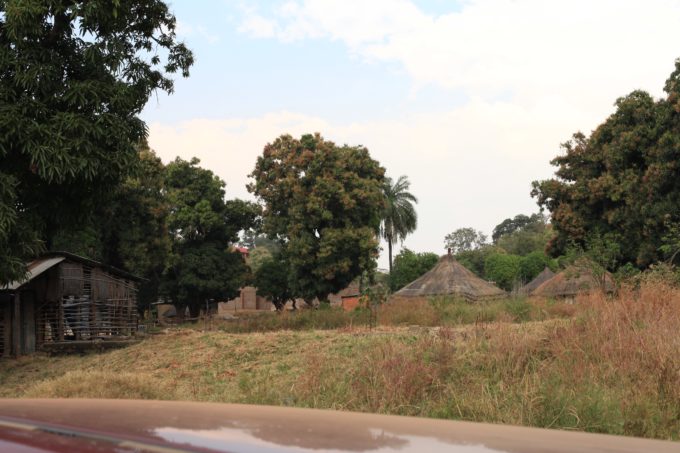
Mango trees and tukuls, Kajo-Keji village, South Sudan.
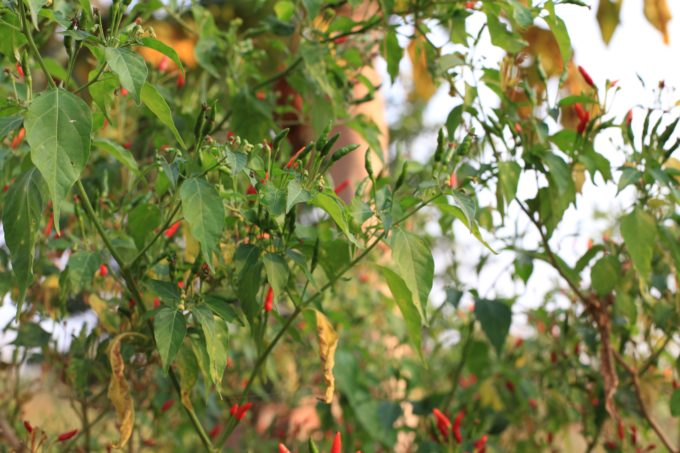
Red piri piri peppers, superhot, Kajo-Keji, South Sudan.
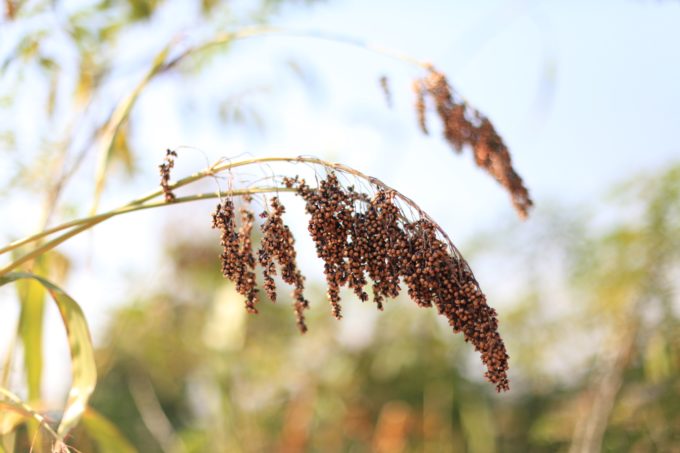
Sorghum grain, Kajo-Keji, South Sudan.



This is a very good writing; please write more about Kajo-Keji in different aspects of life both socially, politically and economically.
Thank you for the encouragement. I will continue writing about our culture.
Lovely words and stunning photos, keep writing and building you work. I hope we can meet one day.
Omer – Sudanese Kitchen
Thank you Omer.
Thanks a lot for this blog/website, which I’ve only just come across. I lived back in the eighties in Tambura and Maridi for a couple of years while teaching in Sudan. Great times, great people, though obviously there were many social, political, and other problems. I even had an Azande girlriend for a while. Long wanted to go back again but time, distance, other commitments, conflict and lack of money all conspired against me. Thanks again for your writing and looling forwnrd to reading more.
am grateful to see thıs pıctures my dear. ıts makes feel at home everywhere ı go.